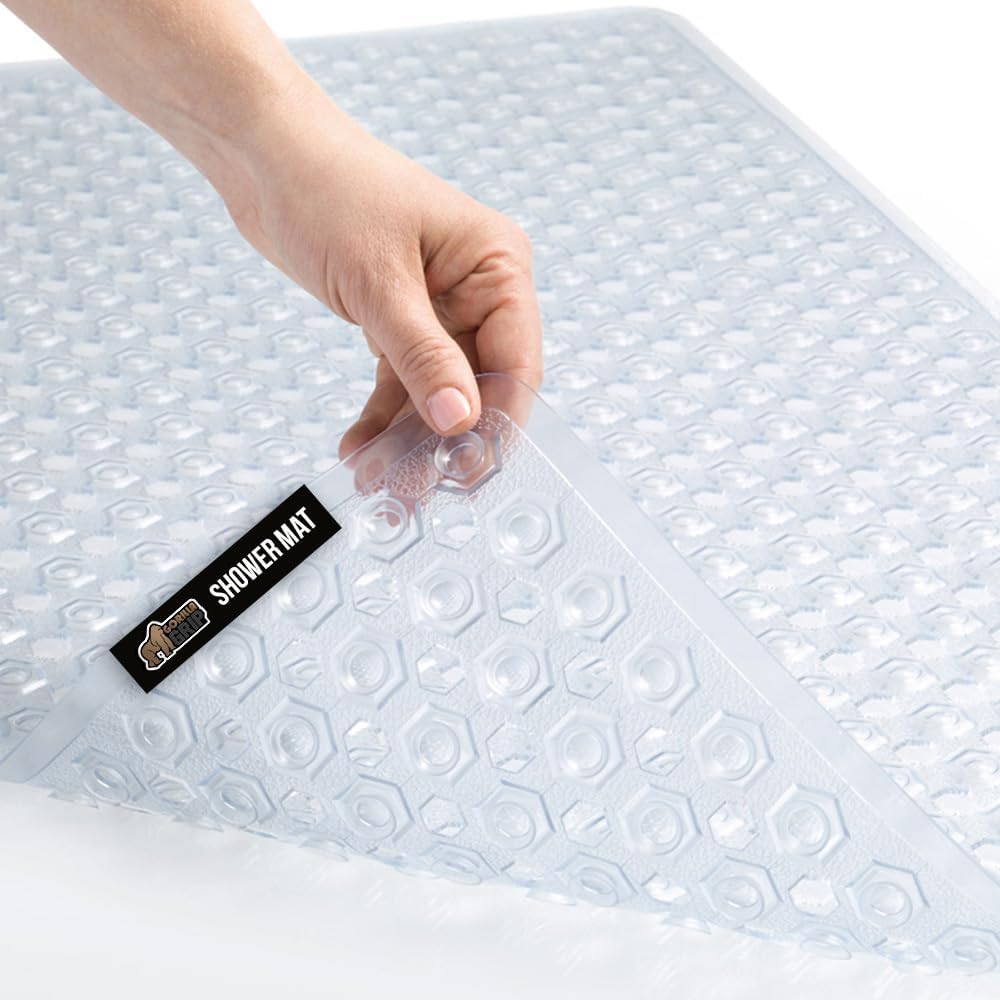Why Do I Get Dizzy and Nauseous in the Shower? (Causes & Prevention Guide)
⚕️
Medical Disclaimer: This article is for informational purposes only and does not constitute medical advice, diagnosis, or treatment. Dizziness in the shower can be a sign of underlying health conditions. Always consult with a qualified healthcare provider for proper diagnosis.
It starts with a subtle lightheadedness. Then, your vision might get spotty, your stomach turns, and suddenly, the safe haven of your bathroom feels like a spinning carnival ride. Feeling dizzy and nauseous in the shower is a frighteningly common experience, affecting everyone from teenagers to seniors.
[Image of the human circulatory system]
While often benign, this sensation—sometimes called “shower vertigo” or pre-syncope—is your body’s way of telling you that your blood pressure regulation is struggling. Whether you are wondering is a cold shower or hot shower better for your health, or you are simply trying to figure out why your morning routine is making you faint, understanding the science is the first step to safety.
🧪 The Science: Vasodilation
The primary culprit is a biological process called Vasodilation. When exposed to heat (like hot water or steam), your blood vessels expand (dilate) to help cool the body down. This expansion creates more room in the veins, causing blood to pool in your legs due to gravity. The result? Less blood returns to your heart and brain, leading to a drop in blood pressure, dizziness, and nausea.
According to Healthline, this combination of heat and gravity is a “perfect storm” for fainting, technically known as syncope.
6 Common Reasons You Feel Sick in the Shower
While vasodilation is the mechanism, several triggers can make you more susceptible. Identifying your trigger is key to prevention.
🌡️
1. The Water is Too Hot
We all love a steam session, perhaps even using a steam shower generator, but extreme heat accelerates vasodilation. The hotter the water, the faster your blood pressure drops.
🏃
2. Post-Workout Dehydration
Did you just finish a run? If you are debating shower before or after exercise, know that showering immediately after heavy cardio is a risk factor. Your blood vessels are already dilated from exercise; adding heat amplifies this.
🩸
3. POTS & Dysautonomia
Postural Orthostatic Tachycardia Syndrome (POTS) is increasingly common. It causes your heart rate to spike when standing still. The heat of a shower exacerbates POTS symptoms significantly.
🍬
4. Hypoglycemia (Low Blood Sugar)
Showering on an empty stomach, especially in the morning, can lead to lightheadedness. Your body needs energy to regulate temperature and blood pressure simultaneously.
🤰
5. Pregnancy
During pregnancy, the body produces more blood, but vessels also dilate to feed the fetus. This lowers baseline blood pressure. If you are prepping for a baby (perhaps wondering when to send baby shower invites), take extra care in the tub.
🦵
6. Locking Your Knees
Standing still for too long with knees locked cuts off circulation return from the legs. This is why soldiers faint in formation, and why you might faint while shaving legs or washing hair.
Immediate Steps: What to Do If You Feel Dizzy
If the room starts spinning, do not try to “power through” it. Fainting in the shower is dangerous due to hard surfaces and glass. Follow these steps immediately:
- Get Low: Immediately sit down on the floor of the shower. Gravity is your enemy right now; lowering your head helps blood return to the brain.
- Change Temperature: Switch the water to cool (not freezing) to help constrict blood vessels. If you have a handheld shower head, this is easier to manage while sitting.
- Hydrate: Once stable, drink a glass of cold water.
- Ventilate: Open the shower doors or curtain to let the steam escape and fresh air in.
Safety Gear to Prevent Falls
If dizziness is a chronic issue for you (or a family member), “toughening up” isn’t the solution—adaptation is. Installing the right safety gear can prevent a hospital visit. Here are the top-rated Amazon products for shower safety.
Heavy Duty Medical Shower Chair
The #1 Solution. If you have POTS, anemia, or vertigo, sit down. A sturdy chair allows you to shower independently without the risk of fainting. Essential for anyone, not just as a bariatric solution.
Check Price on Amazon
Moen SecureMount Grab Bar
Something to Hold. Don’t rely on the towel rack; it will rip out of the wall. Install a proper ADA-compliant grab bar. Crucial for stability if you feel a dizzy spell coming on.
Check Price on Amazon
Gorilla Grip Non-Slip Bath Mat
Soft Landing. If you do lose your balance, a slippery floor is a disaster. This mat has hundreds of suction cups to ensure your footing remains secure even when soapy.
Check Price on Amazon
Long-Term Prevention Tips
Beyond buying gear, adjusting your habits can stop the spins before they start.
1. Manage Ventilation
A steamy room reduces oxygen levels. Use a good exhaust fan. If mold is a concern because of humidity, rely on a shower squeegee to remove water rather than keeping the room hermetically sealed.
2. Contrast Showering
End every shower with 30 seconds of cold water. This helps constrict blood vessels (vasoconstriction), pushing blood back up to your brain before you step out. Read more about hot vs cold shower benefits.
3. Check Your Vision
Sometimes dizziness is visual. If you wear contacts, ensure you aren’t showering with them in, as water can cause swelling or infection, disorienting you. See: Can I shower with contacts?
Frequently Asked Questions
Can a clogged drain cause dizziness?
Indirectly, yes. If you are using strong chemicals to fix a clog, the fumes can make you lightheaded. Always use natural methods like baking soda and vinegar to clear drains safely.
Why do I get dizzy in the shower on my period?
Menstruation causes a drop in iron levels (anemia) and fluid shifts. Combined with the heat of a shower, this makes you much more prone to fainting.
Is it dangerous to shower during a storm if I get dizzy?
It is dangerous regardless of dizziness! Lightning can travel through plumbing. If you feel dizzy and there is thunder, get out immediately. See: Is it dangerous to shower during a thunderstorm?
Can mold in the shower make me sick?
Yes. Toxic mold spores can cause respiratory distress, brain fog, and nausea. If you see black spots, use a professional mold cleaner immediately.
Conclusion
Feeling dizzy in the shower is usually a sign that your body is struggling to regulate its temperature and blood pressure. It is a biological warning shot.
By lowering the water temperature, staying hydrated, and investing in safety tools like a shower caddy (so you aren’t constantly bending down), you can reclaim your shower as a place of relaxation, not anxiety. Listen to your body, and when in doubt—sit down.
Disclaimer: As an Amazon Associate, ShowerBlog earns from qualifying purchases.







